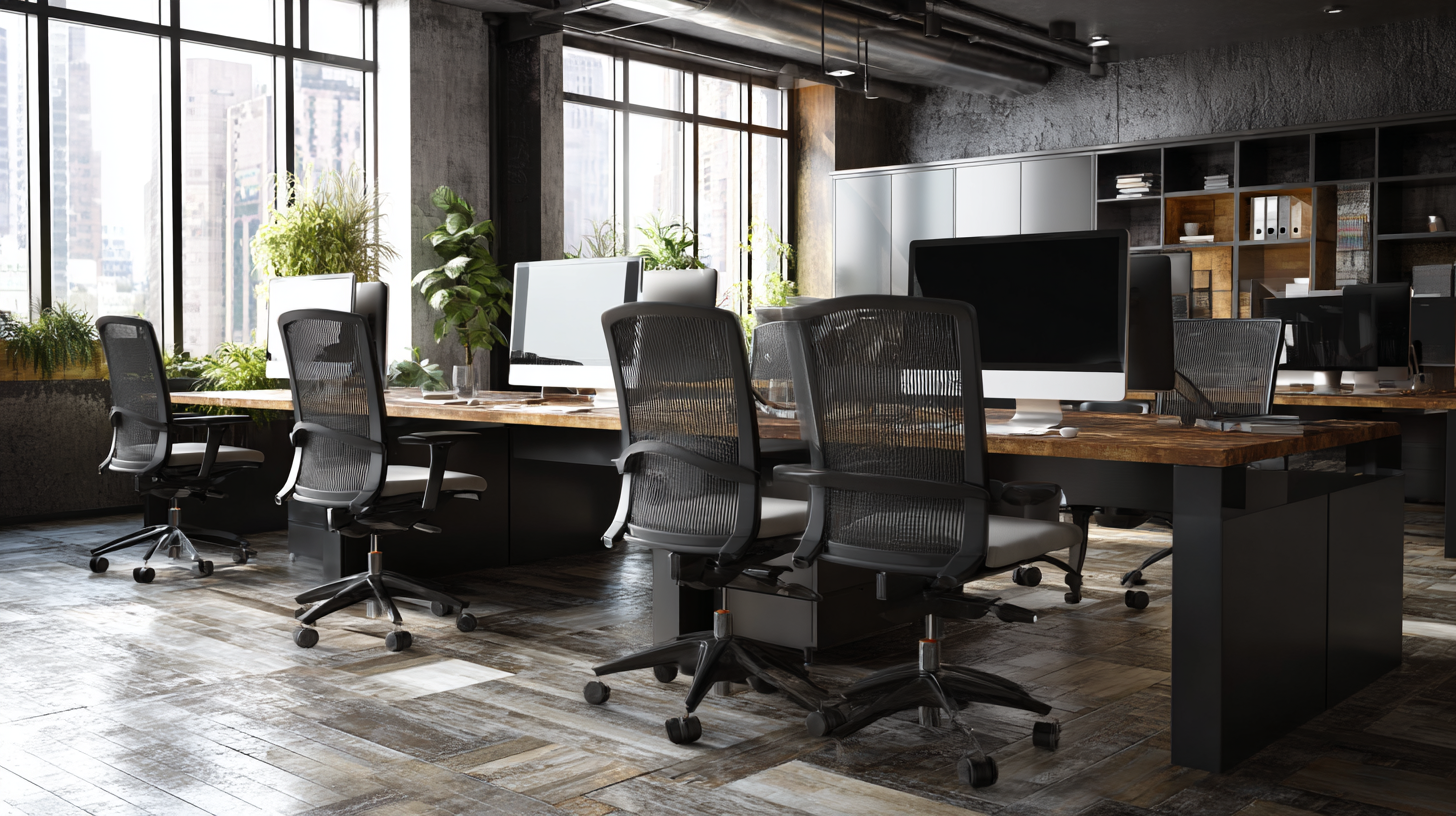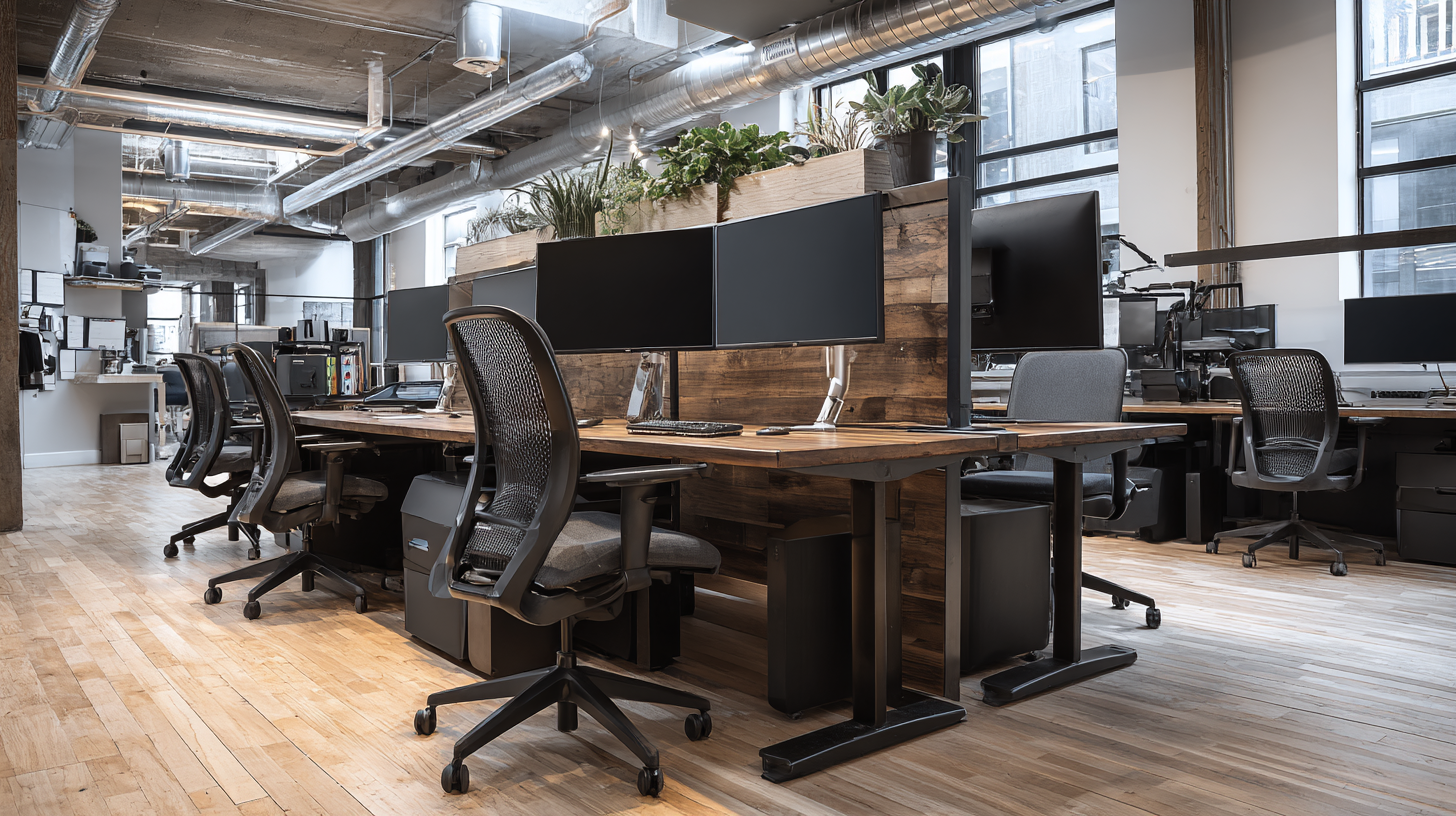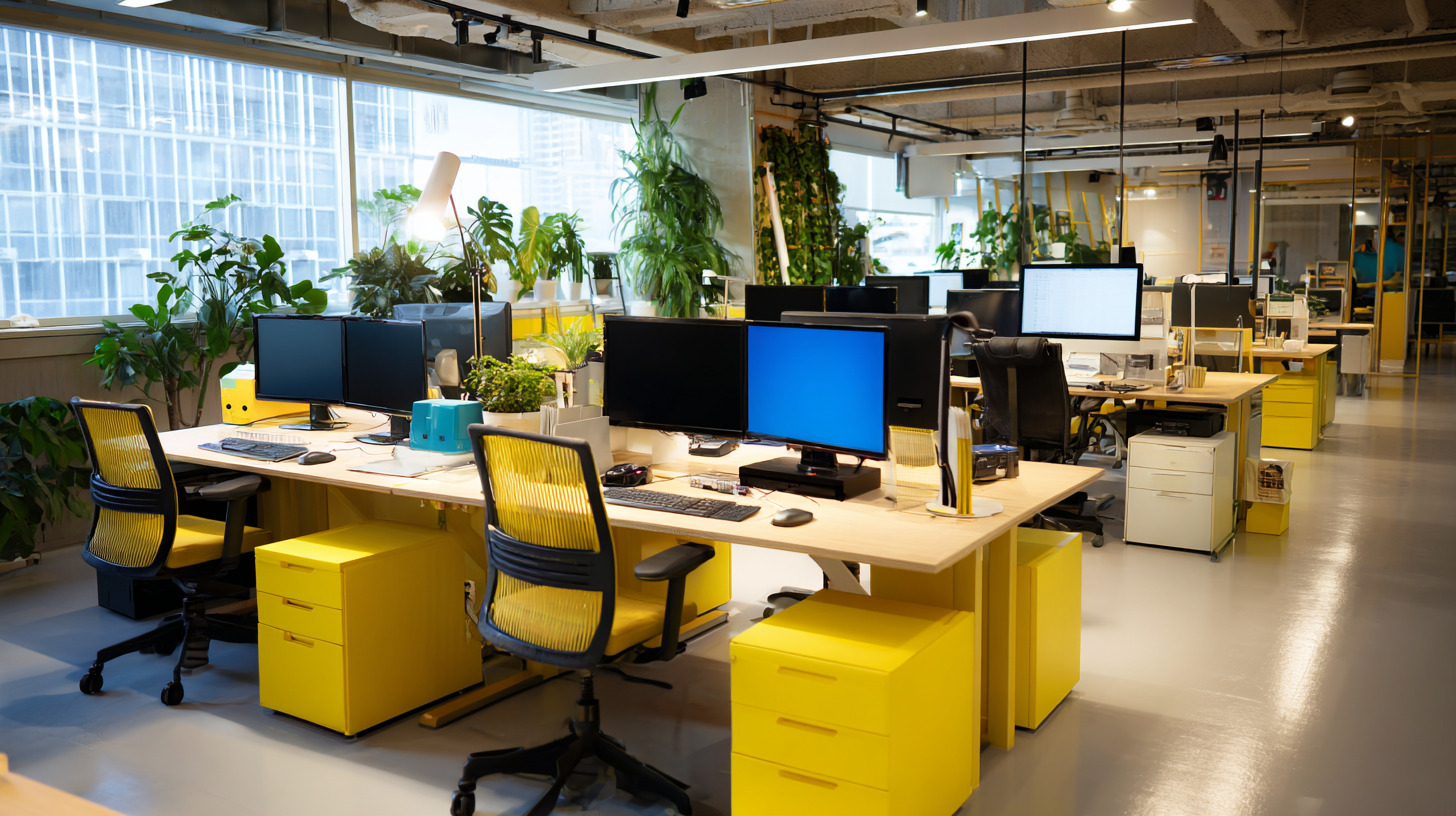Largest Selection of New and Used Office Furniture! Call 1-855-885-3375 or visit a showroom today!
Blog
What Makes the Best Business Desks Stand Out in Today’s Office Environment?
In the rapidly evolving landscape of the modern office, the selection of business desks has become crucial in fostering productivity and collaboration among teams. As we approach 2025, organizations are recognizing that the right desk not only supports the physical needs of employees but also enhances their overall work experience. From innovative ergonomic designs to integrated technology solutions, today's business desks are more than mere furniture; they exemplify the intersection of functionality and aesthetics.

In this blog, we will explore the features that make business desks stand out in contemporary workspaces, examining how these elements contribute to employee satisfaction, efficiency, and adaptability in an ever-changing business environment.
Identifying the Key Features of Effective Business Desks in Modern Offices
In today’s fast-paced office environment, the design and functionality of business desks have evolved to meet the changing needs of modern workers. One of the key features that make an effective business desk stand out is its ergonomic design. Desks that provide adjustable height options allow employees to easily switch between sitting and standing positions, promoting better posture and reducing the health risks associated with prolonged sitting. This adaptability not only enhances comfort but also boosts productivity by keeping energy levels high throughout the day.

Another critical aspect is the incorporation of technology. Modern desks are often equipped with integrated power outlets and USB ports, making it easier for employees to connect their devices without the hassle of searching for available outlets. Additionally, desks with cable management systems help create a clutter-free workspace, which is essential in maintaining focus and organization in a bustling office. Furthermore, sustainable materials and designs resonate well with today's workforce, reflecting a commitment to environmental responsibility that many employees value. These features collectively create an environment that encourages collaboration and innovation, making them essential in the modern workplace.
Understanding Ergonomics: Designing for Comfort and Productivity
In today's office environment, the significance of ergonomics cannot be overstated. As many employees spend substantial hours at their desks, the need for carefully designed workspaces that prioritize comfort and productivity becomes essential. Ergonomic furniture—specifically, desks and seating that promote proper posture—can significantly reduce discomfort and enhance efficiency. According to industry reports, the global market for computer keyboards is projected to reach $7.2 billion by 2032, with a compound annual growth rate of 3.17%. This growth reflects an increasing recognition of the importance of ergonomic designs, influencing not just keyboards but also the desks and accessories that accompany them.

Recent product releases further highlight this trend. Notable companies are introducing innovative ergonomic solutions, such as wireless productivity suites aimed at optimizing both workspace aesthetics and user comfort. The emphasis on ergonomic principles is evident in these designs, as they seek to create an environment conducive to long hours of work without the physical strain often associated with traditional setups. As companies and employees alike invest in ergonomic products, the potential for enhancing workplace productivity becomes increasingly tangible, suggesting that thoughtful design is a cornerstone of a thriving office.
The Role of Aesthetics in Creating an Inspiring Office Space
In today’s competitive business landscape, the aesthetics of office environments play a critical role in fostering employee productivity and morale. Research from the Human Spaces report indicates that 33% of employees feel that the design of their workplace impacts their overall mood and job performance. An inspiring office space not only captures the essence of a brand but also cultivates a sense of belonging and motivation among staff. The choice of colors, furniture styles, and overall design are essential factors that contribute to a visually appealing environment.
Moreover, the incorporation of biophilic design elements, which integrate nature into the workspace, has shown to yield significant benefits. A study by the University of Exeter found that workplaces incorporating greenery can enhance employee wellbeing by 47% and productivity by 15%. These statistics underscore the importance of a thoughtfully designed office, where the best business desks should not only be functional but also harmonize with the overall aesthetics, creating an inspiring atmosphere that propels creativity and engagement. By prioritizing these design aspects, businesses can create a differentiated workspace that resonates with both employees and clients alike.
What Makes the Best Business Desks Stand Out in Today’s Office Environment?
| Feature | Importance Level (1-5) | Impact on Aesthetics | User Feedback (Positive/Negative) |
|---|---|---|---|
| Ergonomic Design | 5 | High | Positive |
| Storage Solutions | 4 | Medium | Positive |
| Material Quality | 4 | High | Positive |
| Customization Options | 3 | Medium | Positive |
| Sustainability | 5 | High | Positive |
Incorporating Technology: Essential Desk Accessories for Today's Work
In today’s fast-paced work environment, the integration of technology into office setups is more crucial than ever. Essential desk accessories not only enhance productivity but also redefine how we interact with our workspace. One of the must-have items is a wired charging pad, which eliminates the clutter of cords and keeps devices powered at all times. This sleek accessory not only saves space but also ensures that employees can stay connected without interruptions.
Additionally, ergonomic accessories such as adjustable laptop stands and keyboard trays play a vital role in promoting better posture and comfort. By allowing users to customize their workspace to fit their needs, these tools can significantly reduce strain during long hours of work. Furthermore, incorporating smart desk lamps that adjust brightness based on the time of day can help to create an optimal working environment, enhancing focus and reducing eye fatigue. As technology continues to evolve, it’s essential that the modern desk adapts to support the dynamic nature of today’s business landscape.
Sustainability in Office Furniture: Choosing Eco-Friendly Desk Options
In today’s office landscape, sustainability in furniture design is becoming increasingly vital as companies strive for eco-friendly practices. According to a 2021 report by the Global Sustainability Forum, nearly 75% of consumers prefer brands that prioritize environmental responsibility. This shift not only reflects a growing awareness of climate issues but also drives demand for sustainable office furniture, particularly desks. Choosing eco-friendly materials like reclaimed wood, bamboo, or recycled composites can significantly reduce a company’s carbon footprint while enhancing the overall aesthetic of a workspace.
When selecting an eco-friendly desk, consider the following tips: First, look for certifications like Forest Stewardship Council (FSC) or Greenguard, which ensure that the materials are sourced sustainably and have low chemical emissions. Second, prioritize companies that utilize local materials, which decreases transportation emissions and supports local economies. Lastly, evaluate the versatility and durability of designs. A modular desk that can adapt to different office layouts not only reduces waste but also prolongs the lifespan of the furniture, making it a more sustainable choice.
Incorporating sustainable desks into your office environment not only showcases corporate responsibly but also creates a healthier workspace for employees. A study published in the Journal of Environmental Psychology found that workplaces employing sustainable practices see a 32% increase in overall employee satisfaction, highlighting the correlation between eco-friendly furniture and worker well-being.
